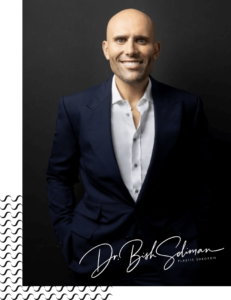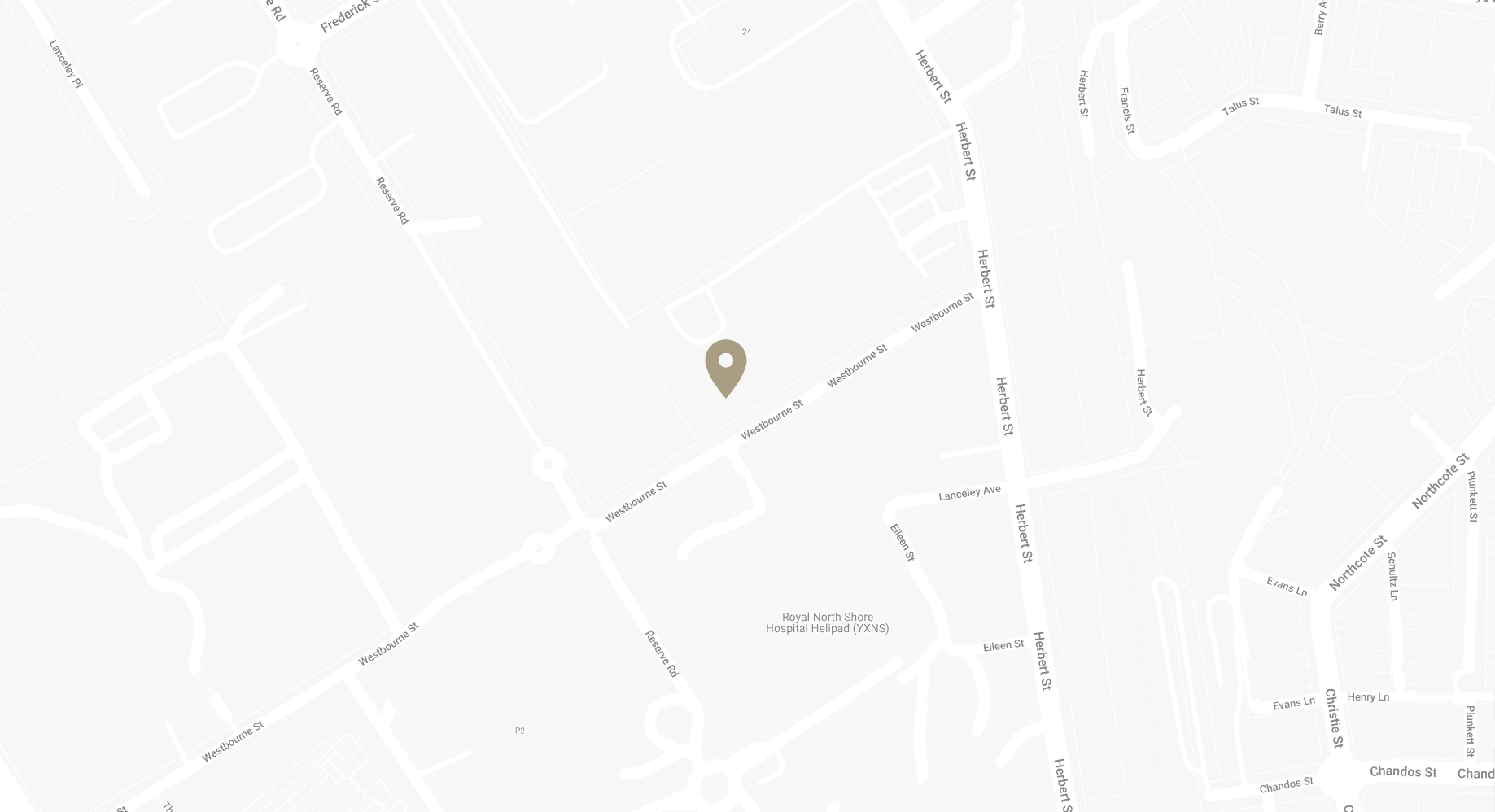Breast Implant Illness: Symptoms, Treatment, and Recovery
When it comes to aesthetic surgery, breast augmentation, commonly involving implants, is a popular procedure. However, it is essential to acknowledge a potential complication – breast implant illness (BII). In this blog, Sydney Specialist Plastic Surgeon Dr Bish Soliman aims to discuss the details of Breast Implant Illness to ensure you make well-informed decisions regarding your health.
Download Dr Bish Soliman Cosmetic Breast Surgery Guide

What Is Breast Implant Illness (BII)
Breast implant illness is a term used to describe a range of symptoms that may occur following the insertion of breast implants. While it is not officially recognised as a medical condition in its own right, increasing attention is being given to the symptoms and experiences of those affected.
BII is often characterised by chronic and systemic inflammation, leading to a variety of symptoms that can affect multiple body systems. Some women may experience minor symptoms, while others may face significant health challenges. The onset of symptoms can vary greatly, occurring shortly after surgery or years later.
The understanding of BII continues to evolve, and research is ongoing into its exact causes and most effective treatments. Being aware of the potential symptoms, causes, and treatment options for breast implant illness can help you make informed decisions about your health and well-being.
Recognising the Symptoms of Breast Implant Illness
Recognising the Symptoms of Breast Implant Illness (BII) is crucial for women who have undergone breast implant surgery. BII encompasses a wide range of symptoms that can vary significantly in nature and intensity, making it a complex condition to identify and manage. The diversity of symptoms associated with BII means that they can often resemble those of other medical conditions, leading to potential misdiagnoses and delays in appropriate treatment.
Common symptoms of BII include chronic fatigue, a pervasive sense of tiredness that rest does not alleviate, and cognitive difficulties such as memory loss, brain fog, and concentration issues, which can significantly impact daily functioning. Muscle and joint pain, often described as aching or throbbing, can limit mobility and affect quality of life. Hair loss, dry skin, and dry eyes are also frequently reported, pointing to the systemic nature of the condition. Some individuals may experience recurrent infections, suggesting a possible impact on the immune system, alongside gastrointestinal problems like bloating, nausea, and changes in bowel habits, and respiratory difficulties, which can range from shortness of breath to chronic coughing.
Local symptoms directly related to the implant site can also occur, including breast pain, changes in breast shape, and swelling or distortion, which may be indicative of complications with the implant itself. It’s important to acknowledge that these symptoms do not occur in everyone with breast implants; the presence and severity of symptoms can vary widely, and not all are necessarily indicative of BII.
The fluctuating nature of BII symptoms, where they may intensify or diminish over time, adds another layer of complexity to diagnosis. This variability can confuse patients and healthcare providers alike, complicating the path to a correct diagnosis. Given the absence of a specific diagnostic test for BII, healthcare professionals must rely on a complex evaluation of symptoms, medical history, and a process of elimination to rule out other conditions.
If you have breast implants and are experiencing unexplained symptoms or health changes, it is imperative to consult with your healthcare provider or plastic surgeon. An open and detailed discussion about your symptoms, the timeline of their appearance, and any other health changes is essential for a proper evaluation. Your healthcare provider may suggest various tests to exclude other potential causes of your symptoms and discuss the best course of action, which may include further monitoring, symptom management, or in some cases, considering the removal of the implants.
Causes of Breast Implant Illness
While the exact mechanisms behind BII are not fully understood, several theories have been proposed to explain why some individuals experience a range of symptoms after receiving breast implants. Here are the primary theories and considerations regarding the potential causes of BII:
- Autoimmune or Allergic Reactions: Some researchers believe that BII may stem from an autoimmune response, where the body’s immune system mistakenly attacks its own tissues, seeing the implant materials as foreign invaders. Allergic reactions to the components of the implant, such as silicone or the outer shell materials, might also trigger symptoms. This could explain why symptoms persist in some individuals despite having no history of autoimmune diseases.
- Bacterial Contamination: The theory of bacterial contamination suggests that bacteria introduced during the surgical process could adhere to the surface of the implant, creating a biofilm. This biofilm can be difficult for the immune system to eliminate, leading to chronic inflammation and possibly contributing to the symptoms of BII. Chronic inflammation as a result of this contamination could trigger systemic symptoms, including fatigue, joint pain, and cognitive difficulties.
- Type of Implant: Both silicone and saline implants have been reported to cause symptoms associated with BII, but there is an ongoing debate about whether one type is more likely to lead to problems than the other. Silicone implants, in particular, have been scrutinised due to concerns about silicone leakage, even in the absence of a rupture, and its potential effects on the body.
- Genetic Susceptibility: There is growing interest in the possibility that genetic factors may predispose certain individuals to BII. Variations in genes related to the immune system’s response could explain why some people develop symptoms while others do not.
- Implant Surface Characteristics: The surface texture of the implant (smooth vs. textured) has also been considered a factor in the development of BII. Textured implants, for example, have been associated with a higher risk of certain types of immune responses, including Breast Implant-Associated Anaplastic Large Cell Lymphoma (BIA-ALCL), which may suggest a broader link to immune system activation.
- Psychological and Emotional Factors: Psychological and emotional well-being play crucial roles in physical health. Some researchers propose that stress, anxiety, and other emotional factors related to undergoing surgery and having implants might contribute to the onset or exacerbation of BII symptoms.
Despite these theories, the lack of definitive evidence and the variability of symptoms make BII a challenging condition to study. The need for more research is clear, as understanding the causes of BII is essential for developing effective treatments and providing appropriate care for affected individuals.
How is Breast Implant Illness Diagnosed?
Diagnosing BII can be a complex process due to its broad range of symptoms that overlap with many other conditions. Currently, there is no specific test to diagnose BII. It is often a diagnosis of exclusion, meaning other potential causes of the symptoms must be ruled out first.
Your healthcare provider or plastic surgeon will take a thorough medical history, focusing on the timing of symptom onset in relation to your implant surgery. They may also perform a physical exam and order various tests to rule out other conditions.
The most definitive way to diagnose BII is an improvement or resolution of symptoms after the removal of the implants. However, this is a significant decision that should be made in consultation with your healthcare provider, considering all potential risks and benefits.
Treatment Options for Breast Implant Illness
The primary treatment for BII is the removal of the breast implants, a procedure known as explantation. This can often lead to improvement or even complete resolution of symptoms, although this is not guaranteed for all individuals.
In addition to explantation, supportive treatments may also be necessary to manage symptoms. These may include pain management, nutritional support, physical therapy, and potentially medications to manage specific symptoms or co-existing conditions.
The recovery process following explantation surgery can vary significantly from person to person. Factors that can influence your recovery include your overall health, the extent of your symptoms, and the type of procedure performed. Initially, you may experience typical post-surgical symptoms such as pain, swelling, and bruising. However, these should gradually improve over the weeks following your surgery. You may also notice an improvement in your BII symptoms, although this can take time and is not guaranteed.
It’s important to follow Dr Soliman’s post-operative instructions carefully to support your recovery. This may include rest, pain management, wound care, and gradual return to normal activities.
FAQs about Breast Implant Illness
Can Breast Implant Illness be prevented?
- Since the cause of BII is not fully understood, specific strategies for prevention are not well-established. Individuals considering breast implants are advised to discuss the potential risks and benefits with their plastic surgeon and to consider their personal health history and susceptibility to autoimmune diseases or allergies. Choosing a qualified and experienced surgeon and following all pre- and post-operative instructions can also help minimise complications.
Is Breast Implant Illness recognised by medical organisations?
- Recognition of BII varies among medical organisations. Some organisations and health agencies acknowledge that some individuals report a range of symptoms associated with breast implants and recommend further research. However, BII is not universally recognised as a distinct medical diagnosis. The U.S. Food and Drug Administration (FDA) has acknowledged reports of BII and encourages reporting of symptoms to help gather more data.
Are certain types of breast implants more associated with Breast Implant Illness?
- There is ongoing research into whether specific types of breast implants—such as silicone vs. saline-filled, textured vs. smooth surface—are more likely to be associated with the symptoms of Breast Implant Illness. Some studies and patient reports suggest that symptoms may occur with all types of implants, but there is not yet conclusive evidence to definitively link the incidence of BII with a particular type of implant. The FDA and other regulatory bodies continue to monitor and evaluate the safety of all breast implants to determine if certain types pose a higher risk.
How common is Breast Implant Illness?
- The prevalence of Breast Implant Illness is difficult to determine due to the lack of a formal definition and diagnostic criteria. The number of reported cases varies, and not all individuals with breast implants will experience BII symptoms. Studies and surveys are underway to better understand how frequently symptoms occur among individuals with breast implants. It’s important to note that the majority of individuals with breast implants do not report BII symptoms, according to current research and available data.
What should someone do if they suspect they have Breast Implant Illness?
- If someone suspects they have Breast Implant Illness, the first step is to consult with their plastic surgeon, preferably one who is familiar with BII. It’s helpful to keep a detailed record of symptoms, including when they began and any factors that worsen or improve them. Your plastic surgeon may recommend tests to rule out other conditions and discuss the potential benefits and risks of various treatment options, including explant surgery.
Further Reading about Breast Implant Surgery with Sydney Specialist Plastic Surgeon Dr Bish Soliman
- Read Dr Soliman’s Recovery after Plastic Surgery Page
- Read Dr Soliman’s Risks of Plastic Surgery Page
- Read Dr Soliman’s Blog about Preparing for Breast Implant Removal Surgery
- Read Dr Soliman’s Blog about Impact of Breast Implant Rupture on Lymph Nodes
- Read Dr Soliman’s Blog about Recovery after Breast Implant Removal
- Read Dr Soliman’s Blog about Potential Breast Implants Complications and How to Avoid Them
Medical References about Breast Implant Illness
- Breast Implant Illness (BII): What It Is, Symptoms & Treatment – Cleveland Clinic
- Breast Implant Illness: A Case Series – PMC
- What Is Breast Implant Illness? – WebMD
- Breast implant illness: Is it real? – Medical News Today
- Self-Reported Breast Implant Illness – Oxford Academic



